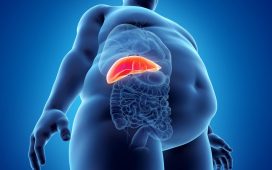For percentage of patients achieving specified reduction in disease activity, iberdomide superior to placebo only at highest dose tested
WEDNESDAY, March 16, 2022 (HealthDay News) — For patients with systemic lupus erythematosus (SLE), iberdomide at a higher dose is superior to placebo for the rate of response indicating reduction in disease activity, according to a study published in the March 17 issue of the New England Journal of Medicine.
Joan T. Merrill, M.D., from the Oklahoma Medical Research Foundation in Oklahoma City, and colleagues randomly assigned 288 patients with SLE to receive oral iberdomide (at a dose of 0.45, 0.30, or 0.15 mg) or placebo once daily for 24 weeks, in addition to standard medications in a 2:2:1:2 ratio (81, 82, 42, and 83 patients, respectively). The primary end point was a response on the SLE Responder Index (SRI-4) at week 24.
The researchers found that the percentage of patients with an SRI-4 response was 54, 40, 48, and 35 percent in the iberdomide 0.45-, 0.30-, and 0.15-mg, and placebo groups, respectively, at week 24 (adjusted difference between iberdomide 0.45 mg versus placebo: 19.4 percentage points). There were no significant differences observed between the iberdomide 0.30- and 0.15-mg groups and the placebo group. Adverse events associated with iberdomide included urinary tract and upper respiratory tract infections and neutropenia.
“In patients with SLE, iberdomide at the highest dose, but not at lower doses, was superior to placebo with respect to the primary end point of an SRI-4 response at 24 weeks,” the authors write. “Longer and larger trials are warranted to determine the effect and safety of iberdomide in patients with SLE.”
The study was funded by Bristol Myers Squibb; Celgene, a subsidiary of Bristol Myers Squibb, manufactures iberdomide.
Editorial (subscription or payment may be required)
Copyright © 2021 HealthDay. All rights reserved.








